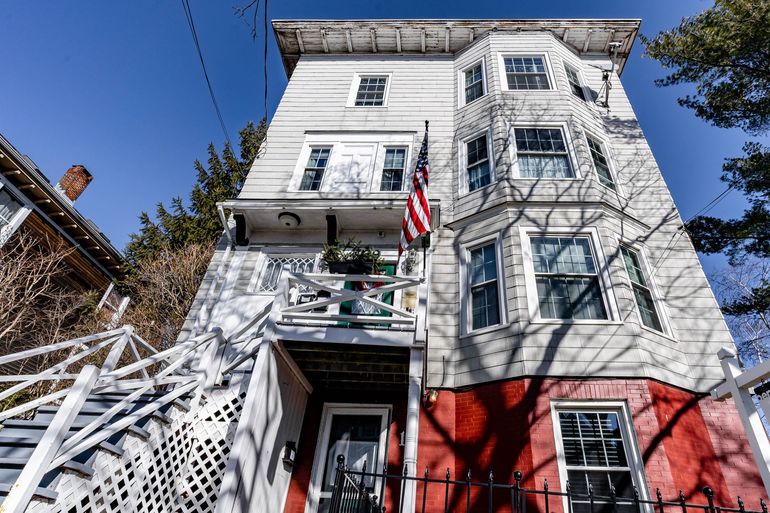Processing Your Payment
Please do not leave this page until complete. This can take a few moments.
- News
-
Editions
-
- Lists
-
Viewpoints
-
Our Events
-
Event Info
- Business Leaders of the Year Reception 2025
- Women's Leadership Forum 2025
- On the Road with Mainebiz in Bethel
- Health Care Forum 2025
- On The Road with Mainebiz in Greenville
- On The Road with Mainebiz in Waterville
- Small Business Forum 2025
- Outstanding Women in Business Reception 2025
- On The Road with Mainebiz in Bath
- 60 Ideas in 60 Minutes Portland 2025
- 40 Under 40 Awards Reception 2025
- On The Road with Mainebiz in Lewiston / Auburn
- 60 Ideas in 60 Minutes Bangor 2025
Award Honorees
- 2025 Business Leaders of the Year
- 2024 Women to Watch Honorees
- 2024 Business Leaders of the Year
- 2023 NextUp: 40 Under 40 Honorees
- 2023 Women to Watch Honorees
- 2023 Business Leaders of the Year
- 2022 NextUp: 40 Under 40 Honorees
- 2022 Women to Watch Honorees
- 2022 Business Leaders of the Year
-
-
Calendar
-
Biz Marketplace
- News
- Editions
- Lists
- Viewpoints
-
Our Events
Event Info
- View all Events
- Business Leaders of the Year Reception 2025
- Women's Leadership Forum 2025
- On the Road with Mainebiz in Bethel
- Health Care Forum 2025
- On The Road with Mainebiz in Greenville
- + More
- On The Road with Mainebiz in Waterville
- Small Business Forum 2025
- Outstanding Women in Business Reception 2025
- On The Road with Mainebiz in Bath
- 60 Ideas in 60 Minutes Portland 2025
- 40 Under 40 Awards Reception 2025
- On The Road with Mainebiz in Lewiston / Auburn
- 60 Ideas in 60 Minutes Bangor 2025
- - Less
Award Honorees
- 2025 Business Leaders of the Year
- 2024 Women to Watch Honorees
- 2024 Business Leaders of the Year
- 2023 NextUp: 40 Under 40 Honorees
- 2023 Women to Watch Honorees
- 2023 Business Leaders of the Year
- + More
- 2022 NextUp: 40 Under 40 Honorees
- 2022 Women to Watch Honorees
- 2022 Business Leaders of the Year
- Nomination Forms
- Calendar
- Biz Marketplace
Sales of large multifamily units drop in Portland despite gains in other markets
 Courtesy / Benchmark Real Estate
This seven-unit property in Portland's East End lost an expected buyer the day rent control was passed. It ultimately sold for several hundred thousand less than expectations, Benchmark Real Estate said.
Courtesy / Benchmark Real Estate
This seven-unit property in Portland's East End lost an expected buyer the day rent control was passed. It ultimately sold for several hundred thousand less than expectations, Benchmark Real Estate said.
The rent control provision passed by Portland voters in Nov. 2020 may have dampened interest in larger multifamily dwellings, with sales falling at a time when such buildings saw sales growth in other Maine cities and towns.
Real estate sales in Portland shattered every record last year, except in one niche market: sales of Portland buildings with five or more units declined 20% to 20 buildings, down from 25, according to Tom Landry, owner of Benchmark Real Estate.
Sales volume of such buildings fell 3% to $33.2 million, Landry said, based on data from the Maine Real Estate Information Service Inc.
While the data sampling may be small, it could be an indication of what’s to come, real estate experts said.
“Rent control seems to have had an impact, especially on buildings with five or more units,” Landry said. “Real estate agents believe they sold for less per unit then they would have in previous years.”
Landry, for example, had a seven-unit dwelling for sale in Portland’s East End, but the expected buyer walked away as soon as the rent control provision passed. It ended up selling for several hundred thousand dollars below expectations due to the new rules that govern rents, he said.
Due to rent control, a complicated set of rules that restrict landlords’ abilities to raise rents, investment properties with five or more units become less desirable and harder to upgrade because it’s difficult to recoup the value of such investments, real estate experts said.
Rent control applies except in certain circumstances, such as two, three, or four-unit dwellings where the landlord occupies one of the units as their primary residence. Those buildings with four or fewer units set new price per unit records for sales in 2021, Landry said.
In 2021, sales of smaller buildings with two to four units surged 45% from 110 to 159. The median sale price of such buildings jumped 42.2% to $515,524, according to Landry.
While sales of larger multifamily dwelling dropped in Portland, Lewiston-Auburn, Brunswick, Gorham and Windham have become increasingly hot markets as rent control pushes wouldbe investors out of Portland, said Brit Vitalius, founder of the Vitalius Real Estate Group.
In the smaller, owner-occupied multifamily buildings in Portland, where rent control doesn’t apply, rents are surging, real estate experts said. And still, there’s demand from renters coming to Portland from other urban locations where rents are even higher.
The rental vacancy rate in Portland is essentially zero, Vitalius said.
The rent control provision is “not helping people get affordable housing. It’s subsidizing the people who can already afford it,” Vitalius said.
The rent control provision itself also has had an escalating effect on rents, with landlords taking the maximum allowed increases, which is the opposite of its intention, real estate experts said.
“Rent control is incentivizing landlords to increase rents more than they would have otherwise,” said John Finegan, an associate with the Boulos Co.
“Rent control is the opposite of fixing the problem. Just like the Green New Deal, rent control worsened the problem it was intended to fix. Rent control was voted in with the best of intentions. But the way the referendum functions, not only does it not fix the problem, it exacerbates it,” Finegan said.
“The fact is that most landlords don’t raise their rents. If you have a happy tenant, you keep a happy tenant,” Vitalius said. “Landlords now feel they are backed into a corner and have to take the allowable increase otherwise they won’t catch up.”
“It’s widening the gap between rent controlled and non-rent-controlled units. There’s nothing in the middle. It will be a less attractive city,” Vitalius said.
Under the rent-control provision, there are only a few ways to raise rents and the maximum allowable annual rent increase can never be more than 10% a year.
Other rent increases can be approved by the rent board if the landlord can demonstrate capital improvements, repairs, or increases in operating expenses.
Since the landlord must first make the improvement and then go before the rent board, however, there’s limited incentive and high risk to make an investment to upgrade an apartment, Finegan said.
“As a landlord now, you just don’t improve the units. You let them fall into disrepair. You don’t take the risk,” Finegan said.
Landry agreed that rent control could prompt landlords to avoid the risk of spending money on improvements, which could lead to safety concerns over time.
“It will lead to safety problems. It will lead to more unsafe, more unsavory apartments,” Landry said.
Mainebiz web partners
as a tenant, high turnover of these types of buildings generally hurts tenants, so its not a bad thing from our point of view if less are sold. unsavoriness, within legal limits, likewise benefits affordability.









1 Comments